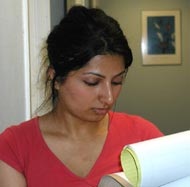Community Legal Clinics and Clinical Education Programs
We believe that an outstanding educational institution is also a socially responsible institution, and our school’s engagement with our local community is an essential complement to our extensive research and teaching on global issues.
The law school’s legal clinics reflect its commitment to a vibrant and thoughtful relationship with its surrounding urban neighbourhood, while providing students with a meaningful clinical education.
Note: For the full range of Experiential Learning Opportunities at the Faculty, visit our Experiential Learning Page.
What the Clinics Offer Students
If you are a student, the clinics offer an exciting array of learning experiences, which can include challenging casework, law reform and test case initiatives, and community legal education activities.
The University of Toronto clinical model incorporates interdisciplinary perspectives and critical inquiry with the opportunity to develop both excellent professional skills, and a sense of social responsibility which reflects the core values of the profession. First year students can volunteer at a clinic, and upper year students have a choice of full-time and part-time programs for academic credit.
What the Clinics Offer Members of the Community
If you are a community member, you may be eligible for legal assistance at one of the clinics, which seek to provide high quality legal services to those who would not otherwise have access to justice.
Cases are handled by student caseworkers, whose services may include legal advice, settlement negotiations, representation at hearings or trials, and the drafting of legal documents, all under the supervision of lawyers. Other services may involve public education workshops, pamphlets, and law reform activities.
The Faculty of Law’s Legal Clinics
Legal clinics allow the law school to provide essential legal services to different urban populations, while at the same time offering students important clinical education experiences. The Faculty’s clinical education program is a dynamic, interactive teaching experience which complements the school’s rich classroom curriculum and provides students with the opportunity to learn about the social reality of law and legal institutions, to explore ethical issues, and to hone crucial professional skills.
Our four in-house clinics are:
Downtown Legal Services is the law school’s leading public interest clinic for low income clients, and the home of its Public Interest Advocacy clinical education programs.
- International Human Rights Clinic focuses on international human rights issues.
- Constitutional Advocacy Clinic of the David Asper Centre for Constitutional Rights provides the opportunity for students to conduct advocacy in the area of constitutional rights, focusing on test cases and policy advocacy.
- Investor Protection Clinic helps members of vulnerable communities (elderly, newcomers etc) who are at risk of suffering harm relating to their investments.
Other clinics in which are students can participate as volunteers or through a course for credit include:
- Aboriginal Legal Services Toronto is a community legal aid clinic that provides a wide variety of free legal assistance to low-income Aboriginal people living in the City of Toronto
- Advocates for Injured Workers is a unique student clinic dedicated to providing high quality legal services to injured workers.
Health Equity and Law Clinic focuses on the development and application of legal frameworks to identify and redress inequity in reproductive and sexual health.

